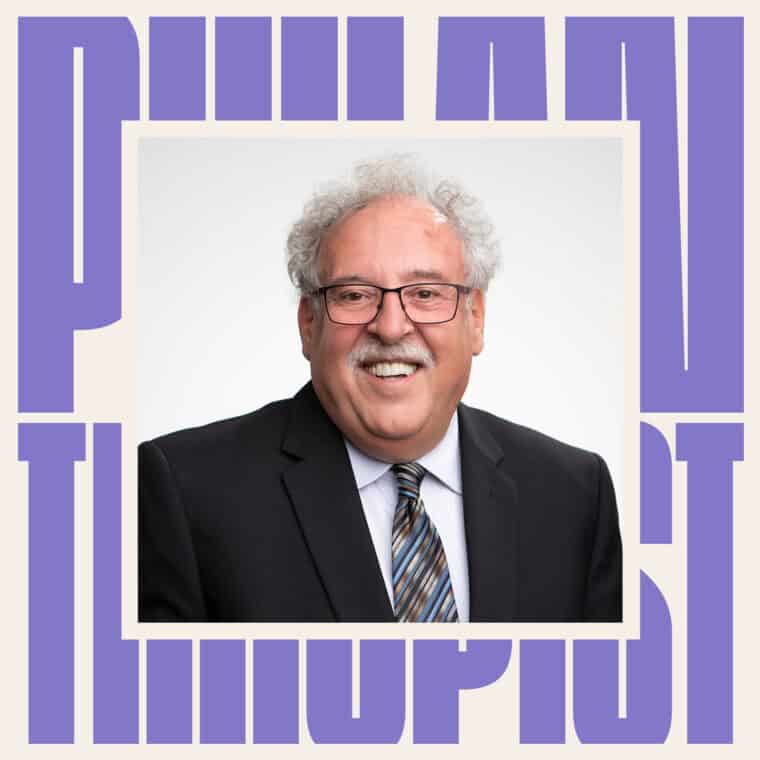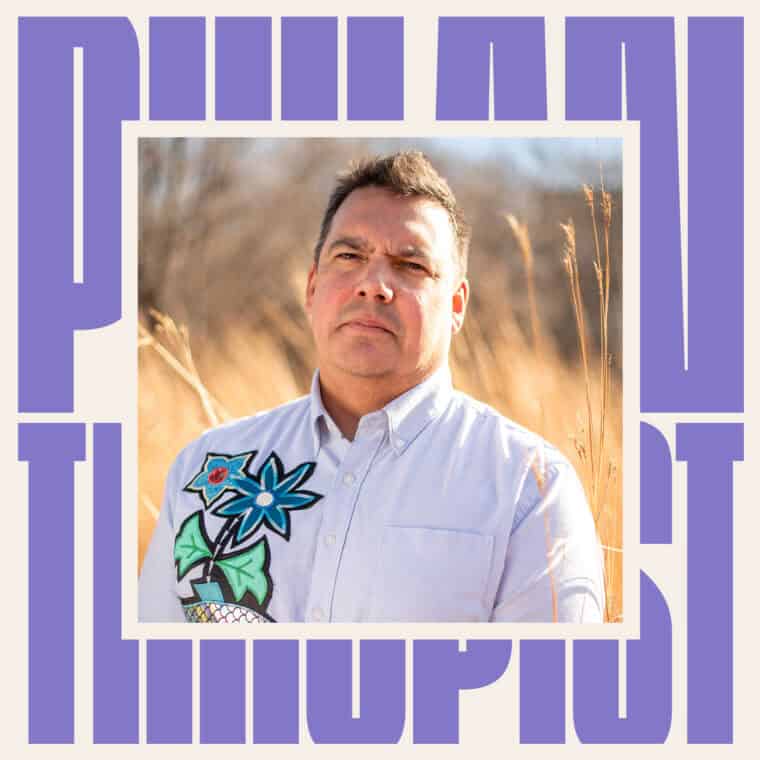Massive changes in government direction are in store this year. Leaders in the philanthropic, charitable, and non-profit sector share how they’re gearing up – and what’s top of mind in 2025.
The winds of political change are blowing in 2025. There’s a new administration in the United States; Canada’s Parliament is currently prorogued as the Liberals gear up to choose a new leader on March 9, and a federal election is expected not long after; provincial elections are scheduled in Ontario, Newfoundland and Labrador, Yukon, and Nunavut. And, of course, there’s the looming trade war and its potential economic implications.
We asked five leaders in the philanthropic and non-profit sector what’s top of mind for them as they navigate yet another year of disruption. Bob Wyatt, executive director of the Muttart Foundation in Edmonton, summed it up bluntly: “This is going to be the year of uncertainty. I tried to dust off my crystal ball, but it just sort of tilted.”

Debbie Owusu-Akyeeah, Action Canada for Sexual Health & Rights
“Elections, and the campaigns leading up them, are an important opportunity.”
Debbie Owusu-Akyeeah is co-director of policy and advocacy at Action Canada for Sexual Health & Rights. The self-described progressive, pro-choice charitable organization is keeping close tabs on political changes on the table this year. “Things that are political are top of mind for us, because they have a direct impact on not only our day-to-day work that might be funded by the federal government, but also our ability to influence on key priority areas,” Owusu-Akyeeah says. “We are going to continue to advocate for our policy priority areas, regardless of who happens to be forming government.”
But Owusu-Akyeeah, a Ghanaian Canadian queer woman, isn’t just thinking about the results of the upcoming federal election. She also views the campaign leading up to the election as a key time to bring issues to Canadians’ attention. “Anytime there’s an election, it’s an interesting opportunity to influence from the perspective of seeing sexual reproductive health and rights either prioritized in certain political platforms or to see [those rights] or gender justice and women’s rights be brought up in particular debates that politicians might have.”
We are going to continue to advocate for our policy priority areas, regardless of who happens to be forming government.
Debbie Owusu-Akyeeah
And, as Owusu-Akyeeah points out, that can mean ensuring “that there still remains popular support for progressive policies” as a flurry of other topics are bandied about, and re-engaging supporters who may have become disengaged or focused on other issues. It can mean reminding supporters that vigilance can ensure that future MPs or the future prime minister are aware that the issues matter to Canadians.
At the same time, Owusu-Akyeeah is adamant that progressive charities and non-profits need to be keenly aware of the importance of reaching beyond their traditional supporters. “It’s so, so important that we – as activists, advocates, feminists, et cetera – really focus on ‘How are we talking to people, and not just people that are part of the choir?’”
She points to increasingly aggressive rhetoric across the globe when it comes to polarized topics. “There’s definitely a shift in the political tone, what people are calling a backlash against the ‘gender movement,’” which is leading, she says, to self-reflection within the movement. “How are we talking to people who are in the centre . . . people who are really just focused on the priority areas that matter to them right now, like housing, affordability, and healthcare?” she asks. “How can we ensure that, as polarization and tensions continue to percolate in our communities, their support for progressive policy doesn’t change, even if the government does? That’ll definitely be a priority for us.”

Bob Wyatt, Muttart Foundation
“Sector organizations need to be ready to pivot very, very quickly.”
Bob Wyatt has been the executive director of the Muttart Foundation, which focuses on early childhood development and strengthening the charitable sector, since 1989. In other words, he’s seen his share of elections, and the turnover that comes with them. Still, for him, 2025 is shaping up to be something totally unpredictable – and unlike years past. “If it were only a change in the federal government, I would say this is business as usual,” he says. But this year feels different.
“When we add to that what is happening outside of our country that could affect our country, that I would say is unprecedented – certainly in my career.”
As Wyatt points out, when Donald Trump was first elected president in 2016, Canada had a fully functioning majority government. Now, “we have a political system in chaos,” he says. “It’s going to be a year where things are going to develop very quickly and are going to change very quickly.”
Wyatt points to the end of the fiscal year – March 31 for the federal government and many organizations – as a crunch time. Parliament is scheduled to return March 24. “It is not clear that a budget would be presented, and certainly unlikely that one would be passed. That puts federal funding to a number of organizations, in my view, at significant risk. And I would be planning for it,” he says. “At that point, we’re starting to operate on hopes and prayers that at least the current costs are going to be covered.”
Not only that, but as soon as the writ drops, the government will go into caretaker mode, confining itself to minimally necessary public business. “Decisions are not going to be made at a time that is critical to the sector, because so many of the sector contracts with the federal government are up for renewal April 1,” Wyatt says. “I think the current times are going to call for an end to analysis paralysis and to call for contingency planning,” he says. “If I were on the board of an operating charity, I would be saying, ‘What happens if our funding is cut 30% on 90-days’ notice? What would we do? Do we have the funds to cover that?’”
We have a political system in chaos. It’s going to be a year where things are going to develop and change very quickly . . . One simply has to be nimble enough to react.
Bob Wyatt
For Wyatt, 2025 will be all about covering the bases in the short term. “If I wanted to be particularly controversial, I would say that it would be foolish for any organization to start thinking about a five-year plan this year,” he says with a wry laugh.
Many organizations are thinking ahead to what a Pierre Poilievre government could look like for the sector. The Conservatives “have a different view of the world than the Liberals do,” Wyatt says, remembering the administration of Stephen Harper between 2006 and 2015. “How that view of the world is going to impact the sector exactly – I’m not sure yet.” He points to a classic Conservative playbook: focusing on deficits and debt and a willingness to cut back and eliminate programs, provincially and federally. “When governments make cutbacks, the sector is disproportionately affected, because almost all of the funding to sector organizations is discretionary funding. It’s not required by statute.”
Taken altogether, organizations could be facing significant headwinds, but Wyatt doesn’t want leaders to catastrophize. “There is a tendency to do the Chicken Little thing,” he says, but he’s adamant that’s not the way forward. “The sky is not going to fall. Canada is going to survive. We are not going to become a 51st state.”
“I don’t want people to abandon hope; what I want people to do is be cautious about future commitments in the short term until the dust settles.” But, he adds, “I don’t know when the dust is going to settle, and a lot of that is outside of our control,” pointing to tariffs and trade wars from the US government, federal election results, Conservative policies if the party claims victory, the role of provinces in making decisions related to the sector, and more.
No one can predict how all of this will come together, he says. “One simply has to be nimble enough to react.”

Jessica Bolduc, 4Rs Youth Movement
“We need to start taking stands on things.”
Jessica Bolduc is the executive director of the 4Rs Youth Movement, a national organization focused on centring the needs of Indigenous young people and their role in moving forward reconciliation between individuals, communities, and systems in so-called Canada.
Bolduc is thinking about the federal election too, but she still sees much work to be done in the aftermath of another big upheaval: the COVID-19 pandemic. “Post-COVID, there was a glaring need to rethink what the charitable and non-profit sector looks like, and how resources flow to the work that matters most,” she says. “And I’m not sure that we’re there yet.”
Bolduc points to lingering hesitancy in the sector to embrace non-qualified donees as an example. Environmental crises like megafires in California are making the necessity of immediate and community-driven response even more clear, she says. “Mutual aid, as a practice within our communities, is coming back really strong and is necessary. It also mirrors resilient communities, including the ways in which Indigenous communities, for example, were structured before.” But getting money to those on the front lines can be needlessly difficult, she says, in an “ecosystem of bureaucracy.”
Bolduc sees a need for a push for standardization in the advice given to charities around what they can or cannot do, noting that right now that can be a “moving target.” That push could come from big foundations or a collective of groups, she says, but either way it must ensure that funding is flexible and meets the needs of what’s happening in community – without the fear of repercussion.
Bolduc is also thinking about how philanthropic organizations will stand up for communities as political power shifts. “Our communities are facing the same kinds of challenges, no matter who’s in leadership,” she says. But that doesn’t mean a change in leadership won’t have ripple effects across communities. “We are in a very dangerous political environment when it comes to rights and justice, not only with what happens in the United States, but with the potential of a future political leadership not valuing things like 2SLGBTQ rights, or the sovereignty of Indigenous Peoples, or the rights of self-determination of Indigenous people globally,” she says. “What’s that going to look like at a policy level? And then what’s that going to look like for the philanthropic community, and what’s the role that they play to either protect or fight back?”
Sometimes philanthropy plays this kind of neutral role. And I think we’re moving out of any era of neutrality. We need to start taking stands on things.
Jessica Bolduc
“That’s a place where the settler-led philanthropic sector has yet to really exercise their power,” she says, adding she thinks philanthropy has a role to play in fighting alongside communities. Sector organizations, she says, can use their “political access, their networks and resources, as well as their money” for that fight.
Bolduc, who is Anishinaabe-French from Batchewana First Nation, points out that 2025 marks the 10th anniversary of the Philanthropic Community’s Declaration of Action. She hopes the sector takes the chance to reflect on its future. “Sometimes philanthropy plays this kind of neutral role. And I think we’re moving out of any era of neutrality,” she says. “We need to start taking stands on things.”
“I hope the philanthropic sector doesn’t conform to the next government but rather really remembers where they’ve come from, digs their heels in, and stands with the people who are going to be impacted the most – to leverage everything that they can to try to protect some of the good work that’s been progressing around the redistribution of wealth.”
But it’s not just politics that Bolduc is thinking about. She also points to the rise of generative artificial intelligence as a big factor to consider in 2025. Organizations need to be thinking bigger picture about how they use the technology, she says, pointing to its massive environmental footprint. “AI . . . imperialism and war and Taylor Swift are significant contributors to the climate crisis that we’re in,” she says. “It’s actually really scary because there’s no consent – no choice – around it.” The International Energy Agency predicts that the electricity consumption of the data centres that fuel AI will double by 2026, to the equivalent consumption of all of Japan, leading some to declare that “AI is pushing the world toward an energy crisis.”
Bolduc says that sector organizations need to really think about how they use AI – and how the technology itself has the potential to amplify some of the problems they’re ostensibly trying to help solve, like climate change.

Fae Johnstone, Society of Queer Momentum and Wisdom2Action
“I think we’ve lost sight of how to talk to people who don’t think like we do.”
Fae Johnstone is the executive director of the Society of Queer Momentum, a Nova Scotia–based non-profit with a mandate to advance freedom, equality, and human rights for 2SLGBTQIA+ people. She is also the ED and co-owner of Wisdom2Action, a consulting firm that specializes in organizational development, community engagement, and 2SLGBTQIA+ inclusion.
Being involved in advocacy, Johnstone says, makes an election year a potentially perilous time. “The federal election is on the horizon, and given our work is more advocacy focused, that is absolutely top of mind all day, every day at the moment. We have an analysis of the potential changes we anticipate under a Conservative government,” including potential cutting of the 2SLGBTQIA+ federal action plan, the risk of legislative regression, and possibly the reduction or full shuttering of the federal department of Women and Gender Equality Canada. “We are definitely mapping degrees of risk and crisis.”
Then there’s the overall funding precarity of the non-profit sector to think about. That includes dealing with rising costs, but also the possibility of funding restrictions due to the politicization of work that touches on systemic discrimination, anti-oppression, and advocacy for social justice. The latter in particular is of great concern, Johnstone says, noting that politicization is likely to be on full display during the election. “The anti-woke rhetoric that we’re seeing emerging from one major political party is, of course, concerning for many of us.”
Johnstone wants advocacy organizations to be thinking about ways to maintain stable funding models – especially as they may be most targeted by changes in governments. “We have to be investing in movements and the organizations that are helping change hearts and minds and bring people into that vision of a better future,” she says.
The sector needs “strong advocacy vehicles that are able to engage critically with government, to push for more and better for our communities,” she says, emphasizing there is a strong need to be independent from government – especially with a potential swing in federal politics. “We need strong, government-funded, non-profit organizations that are advancing public policy, research, and programs to meet the needs of our communities,” she says. “But we equally need independent advocacy bodies that are not government funded, that are able to push and hold politicians accountable on issues that matter to constituents.”
I am hopeful. I have seen the power of our movement, the power of our communities, and the power of our sector, and I refuse to cower or to feel fear.
Fae Johnstone
Meanwhile, Johnstone sees the election as a pivotal time to double down on the foundations of the gender movement, and to push back against its politicization, especially as a 2024 Ipsos survey found that support for LGBT+ visibility – including LGBT+ characters on screen, in sports, and in public displays of affection – is lower now than three years ago. “We’re hard at work developing our own strategies and campaigns to lift up the voices of queer and trans folks and families and allies across the country, to urge all parties to avoid the politicization of the human rights of vulnerable communities.”
It’s clear to many that Poilievre will pose a challenge. Last year he said that “biological males” should be banned from women’s sports and bathrooms, among other “female spaces.” But Johnstone still sees reason for hope – and for pushing to expand the gender rights movement. “I am hopeful. I have seen the power of our movement, the power of our communities, and the power of our sector, and I refuse to cower or to feel fear. I am defiant, I am organized, and I’m bringing everyone I can with me in a vision of a future where everybody’s rights are protected and we can all live a good life in a healthy community.”
Fighting for everybody’s rights, she says, means expanding conversations. “The left and progressive movement do indeed exist in an echo chamber . . . I think we’ve lost sight of how to talk to people who don’t think like we do.”
Johnstone sees a way forward and is embracing a new way of spreading the movement’s message. “If it doesn’t work for a farmer or factory worker or for a newcomer mom, I want nothing to do with it,” she says. “I don’t expect a farmer, who’s having a hard time paying his bills and putting food on the table for his family, to be an expert on all things gay. But I do expect that farmer to understand that human rights protections are part of what makes Canada a better country for everybody, and that we need to come together to maintain that vision of a Canada where we respect our neighbours – even if their families, their loved ones, and their lives look different from our own.”

Niigaan Sinclair, University of Manitoba
“It’s time to stick with these hard conversations.”
Niigaan Sinclair is an Anishinaabe writer and professor and the son of Murray Sinclair, the late Anishinaabe senator and renowned Manitoba lawyer who led the Truth and Reconciliation Commission. Sinclair wants to see his father’s legacy – and his teachings – carried forward. “My dad near the end of his life kept saying the same thing over and over again: ‘We really have to focus on the truth now. You can’t jump to reconciliation without truth,’” Sinclair says.
And truth, he adds, means difficult conversations – including with people who don’t share your views or ideas. “The most important idea of reconciliation is to stay in the room together, especially during the hard conversations.” That might mean being uncomfortable or feeling challenged personally and emotionally, he says. “It may involve us listening to some angry voices. It may also involve us showing incredible empathy towards each other.”
For Sinclair, listening and talking and learning lead to truth. Only then is reconciliation truly possible. “We have to really spend a lot of time with truth . . . to get to the warm fuzziness of reconciliation – which I think we all want to get to. Every single person knows that there’s injustice happening, and they don’t like injustice – we have to do something about it. We can’t just sit idly by and throw pennies at it.”
Philanthropy, Sinclair says, needs to continue a journey of rethinking itself, and what it is. At its core, he says, philanthropy is inherently colonial. “It’s often a top-down approach, offering leftovers, excess, or the profit that people use from businesses, from exploitation, or from sometimes well-meaning efforts, to give to people who are marginalized, who are oppressed, who have experienced tremendous upheaval, relocation, have had their land stolen from them. Philanthropy is a tool of oppression.”
The most important idea of reconciliation is to stay in the room together, especially during the hard conversations . . . It may involve us listening to some angry voices.
Niigaan Sinclair
But Sinclair isn’t throwing the baby out with the bathwater, so to speak. “That doesn’t mean I don’t appreciate it, that I don’t appreciate that people want to provoke change in the world, that people want to be engaged in efforts to try to make this world a better place,” he says. “The problem is philanthropy in the first place – that philanthropy is seen as a solution when it’s part of the problem. Philanthropy as an entire principle is inherently problematic . . . There is no relationality.”
“We can help people understand that philanthropy is not just about donations, and it’s not about even giving a scoop of turkey dinner at Thanksgiving,” he says. “Philanthropy is about changing the ways we live.”
As the Truth and Reconciliation Commission, and its final report, approaches its 10th anniversary this year, 2025 can be a year of reflection for Canada on its progress with those changes – specifically the 94 Calls to Action, for which the government tracks its progress. It’s been a fruitful 10 years in some ways, but it has also been described as a “decade of disappointment,” during which “popular notions of reconciliation are disconnected from the lived experiences of Indigenous communities, an abstract promise of change that doubles as reassurance for a Canadian public.”
Sinclair is hopeful there’s a way forward, if people are genuinely willing to do the hard work of listening and learning. “We all have to be extra patient, extra kind, and extra rational with each other,” he says.
“Education will help us get out of this mess – that’s what my dad used to say.”
Editor’s note: This article was updated on February 4, 2025, to more accurately describe the work of the 4Rs Youth Movement.


